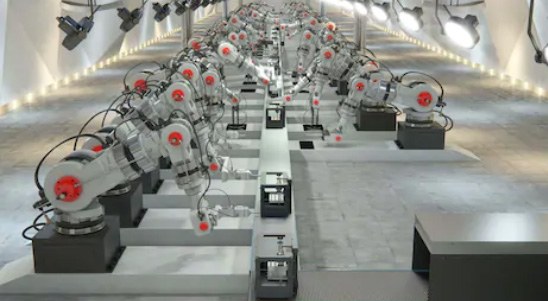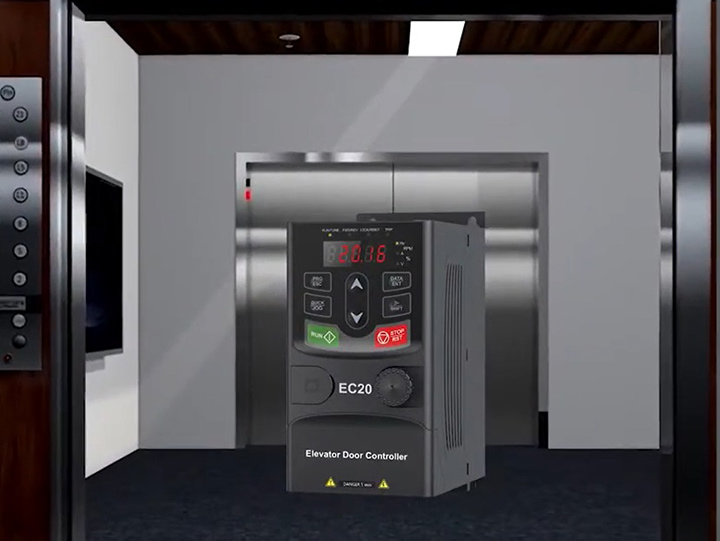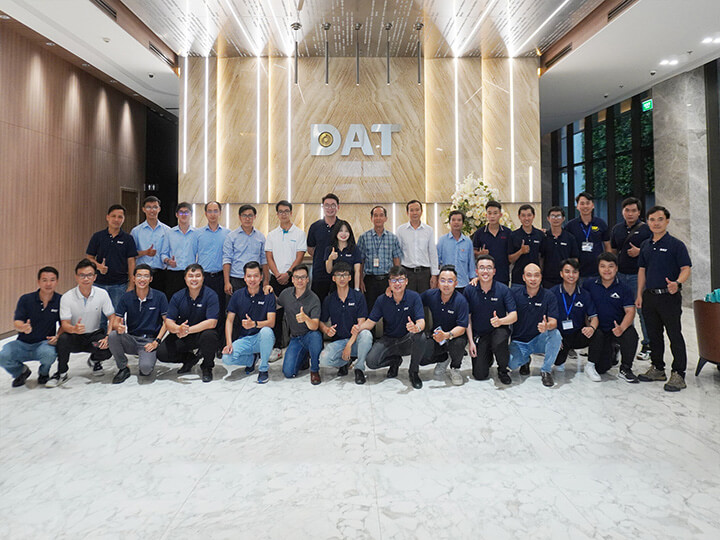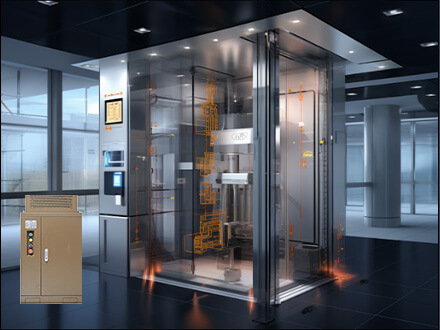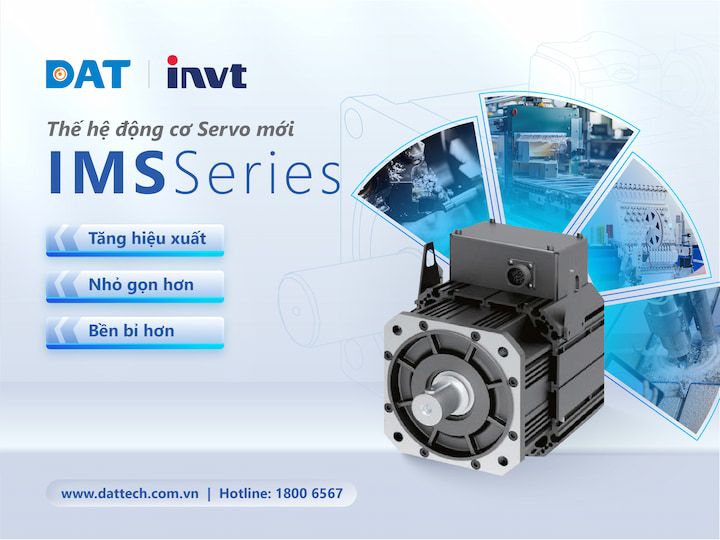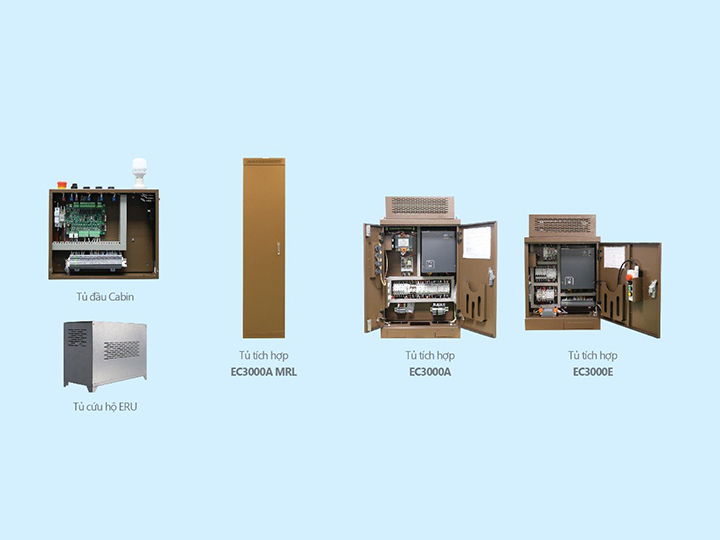Trends in the use of servo motors in modern manufacturing
The development of the industrial sector is closely tied to the advancement of control systems. As technology becomes more advanced, control systems must become more specialized, sophisticated, precise, and responsive to ensure efficient manufacturing processes. Stemming from these stringent requirements, smart and automated manufacturing plants with modern equipment like CNC machines, robots, etc., are gradually replacing outdated machinery and control methods. This trend is driving an increasing demand for servo motors in motion control.
The Necessity of Servo Motors in Industry 4.0 Motion Control
Industry 4.0, marked by the continuous emergence and expansion of modern machinery and smart manufacturing equipment, coupled with breakthroughs in precision mechanical and electronic industries, delegates a significant portion of production activities to robots. Entire factory processes can be fully automated without human interaction, reducing costs and enhancing efficiency, safety, and quality. According to the International Federation of Robotics report in 2017, the global industrial robotization rate is rapidly reaching new heights, with 74% of total robot production contributed by five key countries: China, South Korea, Japan, the United States, and Germany. The wave of robotization and automation, in general, as well as Industry 4.0, is an irreversible trend.
The global surge in robotization and automation necessitates a corresponding development in control systems. Faster, more precise, smarter, and more efficient – these are the essential requirements of modern production for motion control devices.
While traditional motion control methods like VFDs mainly controlled motor speed or torque with limited precision, servo motors are specifically crucial in modern manufacturing because they can precisely control devices (such as robot arms) at high speeds, using mechanisms that allow for three types of control: Position, Torque, or Speed, or a combination of these control mechanisms.
What is Servo, and in which applications is Servo Control commonly used?
Servo is a closed-loop control drive system that receives pulse signals and rapidly and accurately executes commands from the controller. The servo system comprises a servo controller, a servo motor, and an encoder to provide feedback signals from the motor to the controller. The servo motor is used to start and stop at precise positions, adjust torque according to various applications, and change speed extremely quickly, making servos also known as inertial-less motors.
Servos can meet the requirements of most applications for high precision and the most complex control levels, such as machine tools, packaging machines, various types of printers, cutting machines, roll-to-roll applications, applications requiring precise stopping at positions, assembly lines, CNC machines, robot arms, etc.
For CNC machines, using servos helps control the speed and position of the axes extremely accurately, quickly, and flexibly, ensuring the machine’s processing capabilities.
For robot arms, each motion, including rotation, translation, gripping, lifting, shifting, rotation, flipping with load, and performing welding or assembly operations, is controlled by a servo. Each actual movement of the robot during operation is precise, smooth, and without unnecessary motions.
High-end Servos will become a trend for future manufacturing
Unable to stand outside the trend of modern manufacturing, the technology conglomerate INVT researches and develops high-end servo lines from versatile to specialized, meeting all modern control requirements.
DA200 high-end AC servo line is designed for closed-loop feedback systems. With many outstanding features, high performance, precise control of position, speed, tension, powerful operation, and stable operation, the servo system covers a wide power range up to 55kW and a rich communication protocol for connecting to various devices and integrated network control in smart automated production lines. The extremely stable and durable operation in the working environment helps the system achieve a perfect combination between machinery and the environment. The DA200 is the perfect choice for the most complex applications, such as CNC machines, lathe cutter machines, length cutting machines, packaging machines, labeling machines, embroidery machines, printing machines, bringing high economic value.
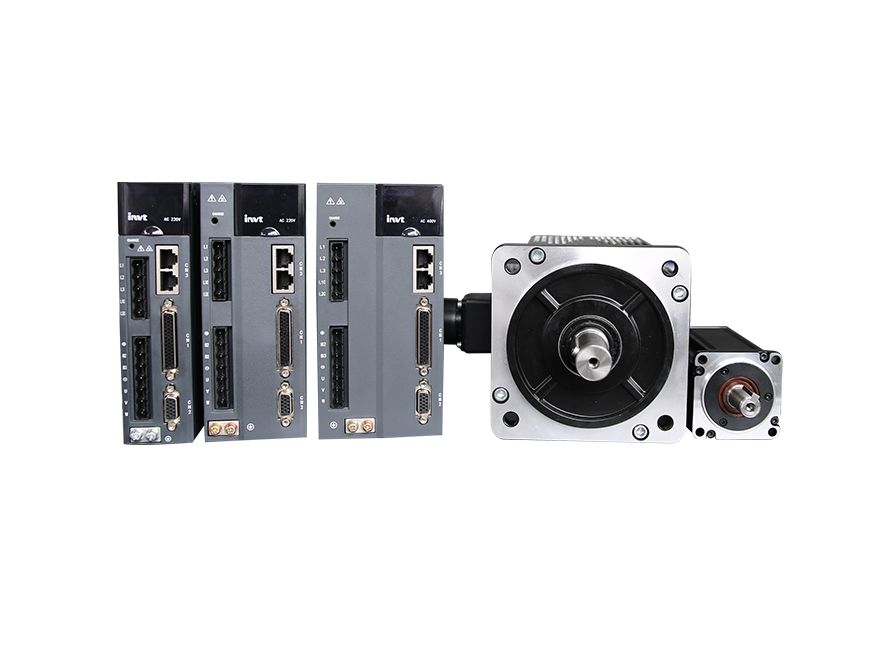
MH800 is a high-end hydraulic servo drive with intelligent control algorithms, designed to control pressure and flow for hydraulic plastic molding systems with high accuracy and fast response, saving up to 80% of energy consumption, improving product quality, and enhancing efficiency for plastic manufacturing plants.
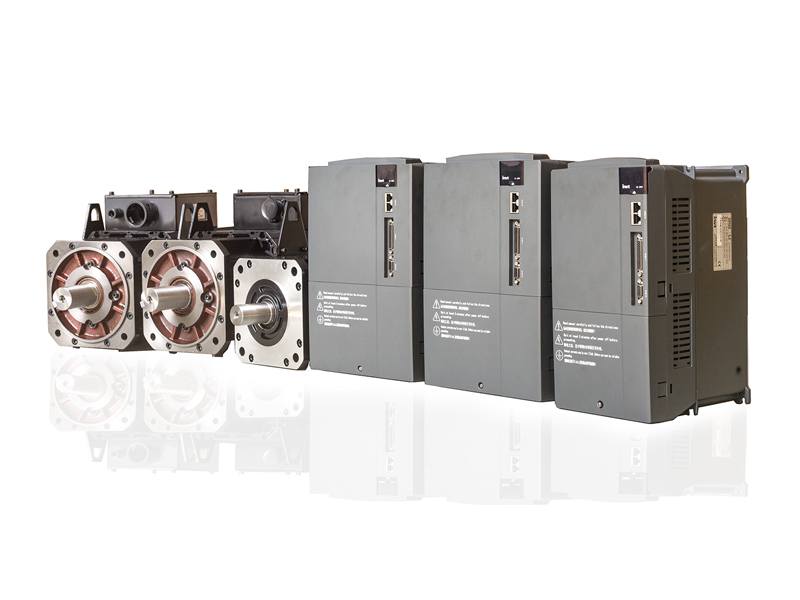
High performance, precise control, and extremely fast response for every application, genuine INVT Servo Motors help businesses access modern manufacturing, improving production efficiency. The products supplied by DAT have been officially provided to the Vietnamese market.
For product inquiries and solutions, customers and partners are encouraged to contact DAT at the toll-free hotline 1800 6567 for prompt assistance.


